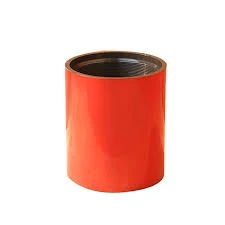- Afrikaans
- Albanian
- Amharic
- Arabic
- Armenian
- Azerbaijani
- Basque
- Belarusian
- Bengali
- Bosnian
- Bulgarian
- Catalan
- Cebuano
- Corsican
- Croatian
- Czech
- Danish
- Dutch
- English
- Esperanto
- Estonian
- Finnish
- French
- Frisian
- Galician
- Georgian
- German
- Greek
- Gujarati
- Haitian Creole
- hausa
- hawaiian
- Hebrew
- Hindi
- Miao
- Hungarian
- Icelandic
- igbo
- Indonesian
- irish
- Italian
- Japanese
- Javanese
- Kannada
- kazakh
- Khmer
- Rwandese
- Korean
- Kurdish
- Kyrgyz
- Lao
- Latin
- Latvian
- Lithuanian
- Luxembourgish
- Macedonian
- Malgashi
- Malay
- Malayalam
- Maltese
- Maori
- Marathi
- Mongolian
- Myanmar
- Nepali
- Norwegian
- Norwegian
- Occitan
- Pashto
- Persian
- Polish
- Portuguese
- Punjabi
- Romanian
- Russian
- Samoan
- Scottish Gaelic
- Serbian
- Sesotho
- Shona
- Sindhi
- Sinhala
- Slovak
- Slovenian
- Somali
- Spanish
- Sundanese
- Swahili
- Swedish
- Tagalog
- Tajik
- Tamil
- Tatar
- Telugu
- Thai
- Turkish
- Turkmen
- Ukrainian
- Urdu
- Uighur
- Uzbek
- Vietnamese
- Welsh
- Bantu
- Yiddish
- Yoruba
- Zulu
Exploring the Range of Tubing Solutions for Diverse Applications
Understanding Tubing Products Types, Applications, and Benefits
Tubing products play a crucial role in various industries, including oil and gas, aerospace, automotive, and construction. Their versatility and adaptability make them fundamental components in many applications, serving purposes that range from transportation of fluids to structural support. This article explores the different types of tubing products, their applications, and the benefits they offer.
Types of Tubing Products
1. Metallic Tubing Commonly made from steel, aluminum, or copper, metallic tubing products are renowned for their durability and strength. They are often used in high-pressure applications such as oil and gas pipelines, hydraulic systems, and structural components in buildings.
2. Plastic Tubing Made from polymers such as PVC, polyethylene, and nylon, plastic tubing offers excellent resistance to corrosion and chemicals. These types of tubing are frequently used in plumbing, irrigation systems, and medical applications due to their lightweight nature and flexibility.
3. Composite Tubing Composite tubing integrates materials like carbon fiber or fiberglass to enhance strength while reducing weight. This type of tubing is commonly found in aerospace and automotive industries where performance and fuel efficiency are critical.
4. Rubber Tubing Frequently used for flexible connections and seals, rubber tubing is essential in automotive and industrial applications. Its elasticity and ability to withstand varying temperatures make it ideal for hydraulic systems and fuel lines.
5. Silicone Tubing Known for its temperature resistance and flexibility, silicone tubing is often used in medical devices, food and beverage processing, and laboratory equipment. Its biocompatibility and non-toxic properties make it a preferred choice for applications requiring high hygiene standards.
Applications of Tubing Products
tubing products

Tubing products have a wide range of applications across multiple sectors. In the oil and gas industry, high-strength metal tubing is utilized for transporting crude oil and natural gas from extraction sites to refineries. The tubing must withstand extreme pressures and harsh environmental conditions, which is why materials are carefully selected for their strength and durability.
In the medical field, silicone and plastic tubing are vital for the safe transmission of fluids. They are used in a variety of medical devices, including IV drips, catheters, and breathing apparatuses. The demand for biocompatible materials ensures that products are safe for patient use and minimize the risk of adverse reactions.
The construction industry also heavily relies on tubing products. Steel tubes are often used for scaffolding, structural supports, and safety railings due to their robustness. Additionally, plastic tubing is essential for piping systems that transport water and gas, providing a reliable and cost-effective solution that is resistant to corrosion.
In the automotive sector, rubber tubing is found in various applications such as fuel lines, brake systems, and cooling systems. The flexibility and resilience of rubber allow for efficient movement of fluids while absorbing vibrations that may occur during operation.
Benefits of Tubing Products
The benefits of tubing products are numerous, making them indispensable in various applications
- Durability Metallic and composite tubing provides significant strength and resistance to wear and tear, making them suitable for demanding environments. - Versatility The diverse range of materials allows for a wide array of applications, from industrial to medical uses. - Corrosion Resistance Plastic and certain metal tubes offer excellent resistance to corrosive substances, ensuring longevity and reliability. - Cost-Effectiveness Plastic and rubber tubing tends to be more affordable compared to metals, offering budget-friendly solutions for various projects without compromising quality. - Flexibility and Adaptability Flexible tubing can navigate complex layouts and confined spaces, making installation easier in challenging environments.
Conclusion
In conclusion, tubing products are an essential part of modern life, with applications spanning countless industries. Understanding the types, applications, and benefits of tubing can help businesses and consumers make informed decisions regarding their usage. From ensuring the safe transportation of fluids to providing structural integrity, the importance of tubing products cannot be overstated. Whether in high-pressure oil pipelines or flexible medical devices, tubing products continue to prove their value as vital components in our infrastructure and daily activities.
-
Tubing Pup Joints: Essential Components for Oil and Gas OperationsNewsJul.10,2025
-
Pup Joints: Essential Components for Reliable Drilling OperationsNewsJul.10,2025
-
Pipe Couplings: Connecting Your World EfficientlyNewsJul.10,2025
-
Mastering Oilfield Operations with Quality Tubing and CasingNewsJul.10,2025
-
High-Quality Casing Couplings for Every NeedNewsJul.10,2025
-
Boost Your Drilling Efficiency with Premium Crossover Tools & Seating NipplesNewsJul.10,2025







